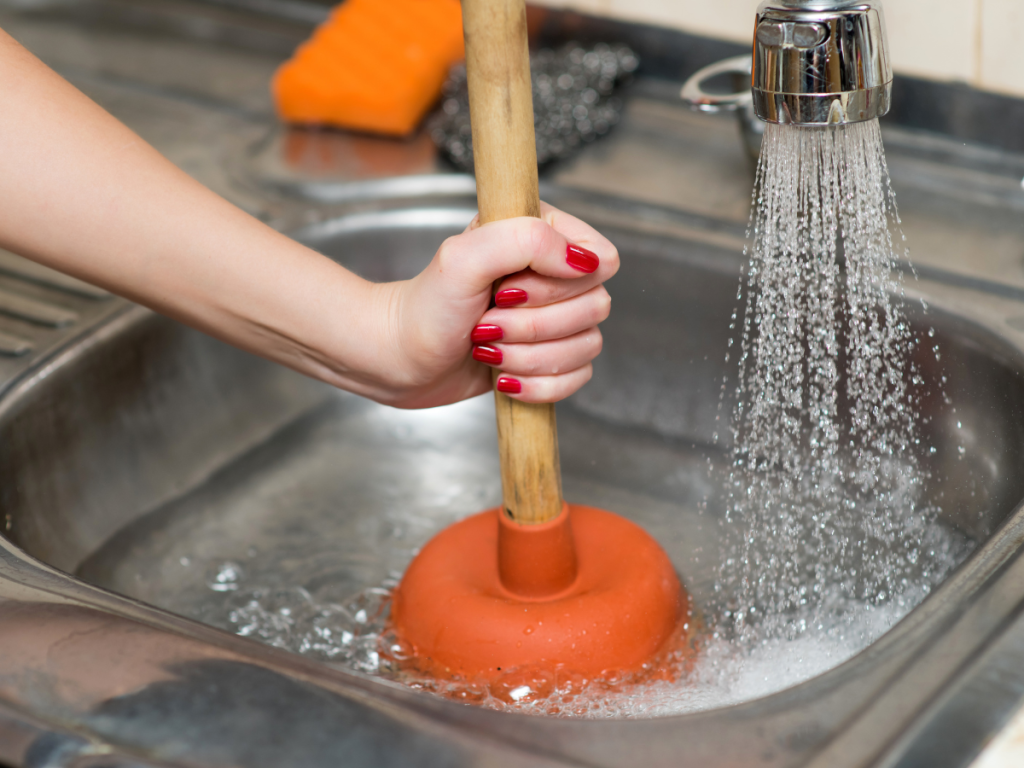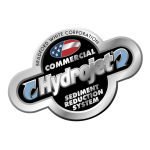Slow-draining sinks can be a frustrating challenge for many homeowners, putting a damper on their daily routines.
This guide will dive into the common causes that can lead to this plumbing predicament. We’re here to provide you with the knowledge needed to identify the issue.
If you’re having trouble identifying the problem or need professional intervention, get in touch with Plumb-Tech! We have a commitment to simplicity, clarity, and helpful service, aiming to offer solutions that will get your sink back to its optimal function in no time. Whether you’re experiencing problems with your sink or scale buildup from hard water, we can help get to the root of the issue.
The most common culprits of slow-draining sinks
Understanding the reasons behind a slow-draining sink is the first step to fixing the issue. Here are some common culprits.
Hair accumulation
In bathroom sinks, hair is often the main offender. Over time, strands can bind with grease and other sticky substances to form clogs, impeding water flow. To avoid this issue, use a hair catcher in your sink drain and clean it regularly.
Grease buildup
When washed down the kitchen sink, grease and oils can coat the pipes, gradually narrowing the passageway and slowing down water drainage. Avoid washing grease and oil down the sink and instead dispose of them in a sealed container.
Food particles
Larger food particles that escape the garbage disposal can get lodged in the drain, creating an obstruction. To prevent this issue, always run cold water while using the disposal and avoid overloading it.
Soap scum
Soap residue, when combined with minerals in water, forms soap scum that can adhere to pipe walls, restricting water movement. Preventing this buildup can be achieved by regularly cleaning the sink with a mild abrasive.
Foreign objects
Small objects accidentally dropped down the drain can become stuck, hampering water flow. This might include toothpaste caps, earrings, or other small items. Always be mindful of what you are putting down the drain and use a drain guard to catch any accidental drops.
P-trap problems
Another possible (and major) contributor to sink drainage woes could be problems with the P-trap.
The P-trap is the curved section of pipe found beneath every sink. Its primary role is to prevent sewer gasses from entering the home by holding a small amount of water in the curve that acts as a seal.
Here’s how issues with the P-trap could result in a slow-draining sink:
- Clogs within the P-trap: Over time, debris such as hair, soap scum, or food particles can build up in the P-trap, leading to a blockage that slows water drainage
- Misalignment: If the P-trap isn’t aligned properly during installation or has shifted afterward, it can cause water to drain slower than usual due to poor flow
- Venting issues: The P-trap is typically connected to a venting system that allows air to escape the pipes. Should this vent be clogged or improperly installed, the result can be a vacuum effect that affects drainage
- Leaks: A leak in the P-trap cannot only waste water but also reduce the seal’s effectiveness, altering drainage and allowing sewer gas to escape
- Corrosion: Metal P-traps can corrode over time due to the constant presence of water and chemicals, potentially leading to holes that disrupt the trap’s water seal and slow down drainage
Slow drain solutions
Here are some tried-and-true solutions to help with a slow-draining sink.
Boiling water treatment
Sometimes, a simple solution is all you need. Carefully pour boiling water directly down the drain to dissolve any minor grease or soap buildup that might be causing the blockage. Repeat this a few times if necessary.
Baking soda and vinegar
For an eco-friendly cleaning solution, , pour a half cup of baking soda into the drain, and then add an equal amount of vinegar. Place a damp cloth over the opening to keep the chemical reaction contained for roughly 30 minutes. Afterward, flush the drain with a stream of boiling water.
Plunger method
A plunger can often dislodge clogs. Make sure to cover the overflow valve with a wet rag before plunging to ensure proper pressure. For double-basin sinks, make sure to block the other drain before plunging.
Snake or auger
If the clog persists, a plumber’s snake or a drain auger can be inserted into the pipe to break up the obstruction. This tool can be used in conjunction with a plunger to eliminate remaining debris.
Chemical cleaners
Using a chemical drain cleaner is an option, but use it sparingly. Overuse of harsh chemicals can damage your pipes over time. Always follow the instructions carefully and make sure to use protective gear.
P-trap inspection
Place a bucket under the P-trap to catch water and debris. Unscrew the connectors and inspect for clogs. Cleanse thoroughly and reassemble. If there are any leaks or damaged sections, it’s best to contact a professional plumber.
When to consider a plumber
Each of these issues can cause water to drain slowly, which not only is inconvenient but also can lead to harmful bacteria growth and unpleasant odors, potentially affecting indoor air quality.
While some DIY solutions can help, it’s usually recommended to have a professional address more serious issues. They can help with a myriad of plumbing problems, whether it’s with drain cleaning or otherwise.
Here are some tell-tale signs that you should really call a plumber:
- Recurring clogs: If you’ve cleared the clog but it keeps returning, it’s time to call a professional. They’ll have the tools and expertise to diagnose deeper issues
- Multiple slow drains: If more than one sink is slow to drain, this could indicate a blockage in your main line, which is a job for the pros
- Water backflow: When water starts backing up in other fixtures when you use your sink, this is a sign of a more serious blockage that calls for professional intervention
Are slow-draining sinks causing you problems? Contact the pros!
Combating a slow-draining sink can often be a straightforward fix, but it’s also important to know when to call in the experts.
Plumb-Tech is committed to ensuring that your plumbing stays clear and functional. If you’re facing stubborn plumbing challenges, whether it’s a slow-draining sink or a water softener full of water, don’t hesitate to reach out to our experienced technicians.
For expert advice or assistance, contact us at Plumb-Tech and say goodbye to your plumbing woes!





